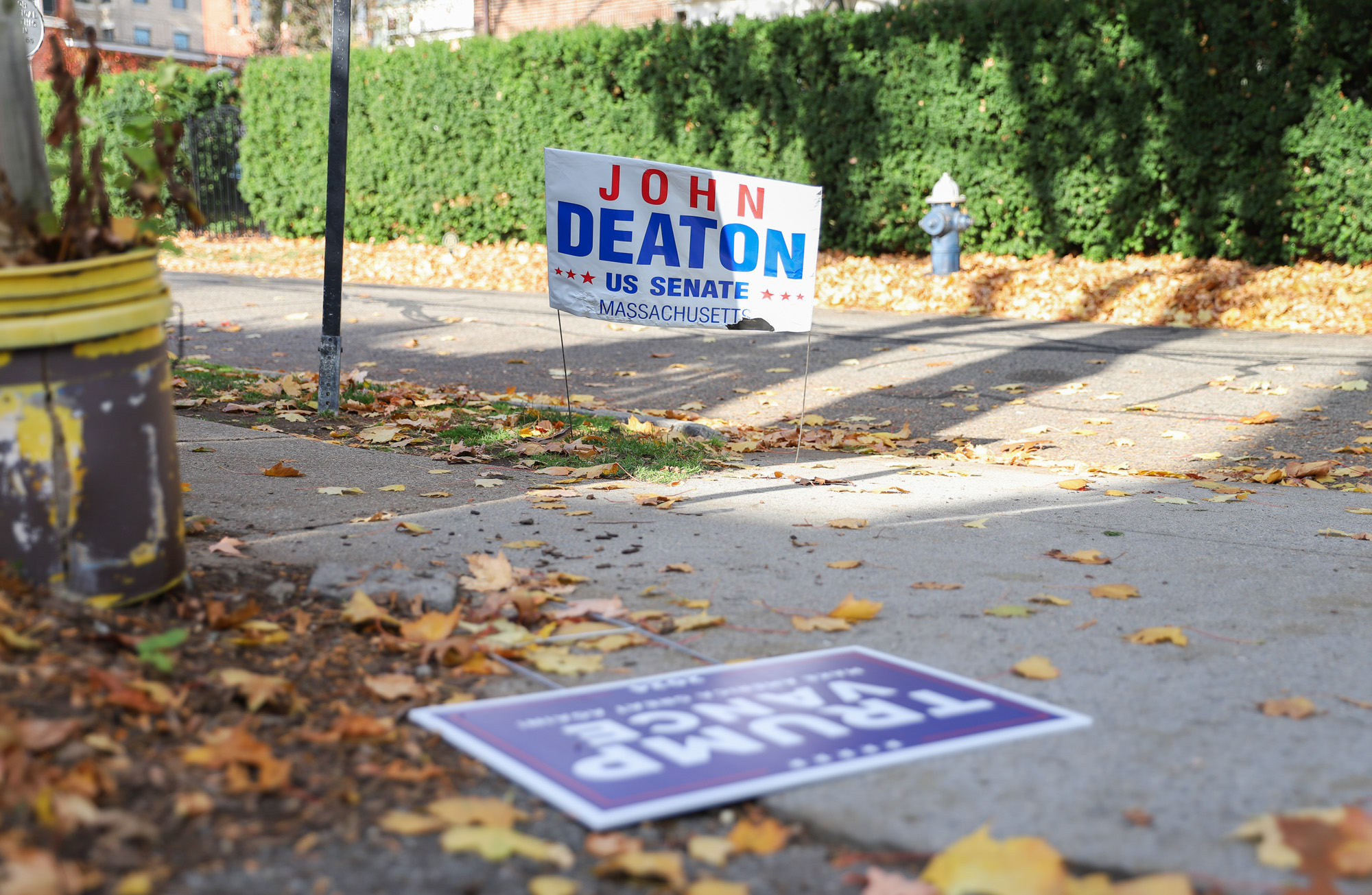Alex Alaev entered the polling location at Cabot Elementary School in Newton Tuesday morning and said he did not even look at former president Donald Trump’s name when he cast his ballot for the Republican candidate in the 2024 Presidential Election.
Alaev, an IT consultant originally from Russia, said he knows “how scary [the] government could be.” He voted for Republican candidates for the last 27 years, which he said differed from his wife’s vote this year.
“She votes only for gender, so if she sees a woman, she would vote for a woman,” Alaev said. “It doesn’t matter what’s on the ballot. I’m voting for the party, so in our family, my vote kills her vote.”

This election is a close race, according to final projections published ahead of Election Day. Newsweek’s Nate Silver forecasted Vice President Kamala Harris has a 50% chance of winning the Electoral College compared to Trump’s 49.6%.
The percentage of Americans identifying as either strongly liberal or strongly conservative increased from 24% to 28% from the first to last quarter of 2023, according to the Vanderbilt Project on Unity and American Democracy. This research projected the trend will continue into 2024, fueled by the election.
Many voters expressed frustration at the polls on Tuesday, saying the rise in political divide has impacted communities.
“You can’t talk to people,” said Jack Winn, 86, from Beacon Hill. “It’s never been like this.”
Mary Ellen Murphy, an 80-year-old retired nurse, said no political division had come between her own family, but she was “sure” it had occurred for others.
Catherine Christianson, 31, a speech-language pathologist living in Beacon Hill, said she saw her own family “split down the middle” and blames social media for worsening the divide.
“It just feels like everyone’s getting completely different information,” Christianson said. “It’s just hard to tell what side people are on and what information they’re getting. It just feels completely segmented.”
Winn said the increase in polarization he has seen in this election cycle is “insane,” and he has confronted people whose votes he finds hypocritical.
Jessica Mitten, a public defender from Boston, said she does not completely “believe” exit polls, because voters are afraid to be honest about their vote.
Almost a quarter of voters said they lied to their loved ones about the candidate they voted for, according to an Oct. 30 Axios Vibes survey.
“People are lying and pretending to be undecided, when they’ve decided who they’re voting for,” Mitten said. “They just don’t want to say.”
Phillip Granberry, a social demographer for the City of Boston, also has been “tuning out the polls.”
“The polls don’t have enough data to make statistics,” Granberry said. “They’re meaningless, and the media should have quit reporting them.”
Charlie Johnson and Emilia Wisniewski contributed reporting.






















































































































